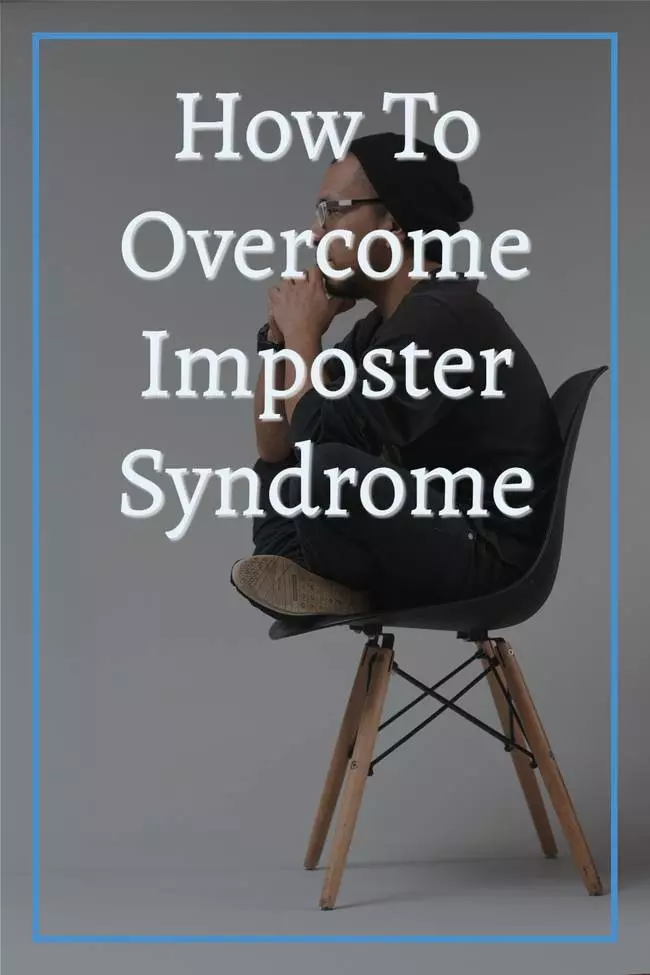Imposter syndrome is the sensation that you feel you’re not good enough, whether at work or when surrounded by friends and family. You understand that you’re winging it, and those around you will find out you’re a fraud sooner rather than later.
This can have a severe impact on your self-esteem and overall professional performance. Considering it’s a new year and all that, you will want to start it off by making some vital changes. One of these crucial adjustments is overcoming your imposter syndrome and realizing you are meant to be here, regardless of what the little voice in your head continues to tell you.
What is Imposter Syndrome?
In simplest terms, the definition of Imposter Syndrome is the psychological pattern where an individual persistently doubts their own skills, talents, accomplishments, and achievements. A man with Imposter Syndrome has the persistent fear and feeling that he may be exposed as a fraud to his peers, coworkers, family, and or community. This fear can be rational due to actual weaknesses or it can be simply caused by a low sense of self esteem and lack of being able to attribute events in their life to their doing. It is more than simply failing to take credit for the actions and value that they provide. Imposter Syndrome can be an active rejection of those attributes more so than simply a lack of ability to recognize them.
While Imposter Syndrome is most commonly diagnosed in women, men also suffer from this. Unfortunately, like many other men's health problems that we face, many men don't share their thoughts and feelings with others and the imposter syndrome goes undiagnosed and they are unable to benefit from counseling or psychiatric attention.
But getting over imposter syndrome is easier said than done. This doesn’t mean it’s impossible, though. All it means is that you need to understand how to ignore that voice and get on with your life.
Be Prepared
It’s safe to say that everyone has had a presentation or meeting that they feel entirely unprepared for. They worry that they won’t be able to answer questions, or even forget what they are talking about before they even get started. This is one of the biggest factors that can contribute to imposter syndrome. But you can avoid these feelings altogether by being prepared.
Researching, learning more about topics and subjects, and practicing presentations or performances will immediately make you feel you are more prepared for anything. Maybe you still don’t feel entirely qualified to answer whatever questions come your way, but it’s also likely that you’re overestimating expectations.
Often, you believe that you need to do far more than you actually do to make a good impression. So, while you should still make sure you are as prepared as possible, which will bring the confidence you need, you needn’t stress yourself out by overdoing it, because it might turn out you didn’t need to, anyway.
Find the Best Resources
Whether you’re running a small business or have recently been made responsible for improving productivity or streamlining office operations, finding the best resources will enable you to avoid imposter syndrome and prove to everybody (including yourself) that you belong.
The best resources are a crucial element for anyone trying to make a name for themselves in the small business world. Without them, you reduce the chances of standing out, as you won’t look as professionals as your competitors. Even things such as a sample invoice or an active social media page can help you look the part, and this will easily make you look like someone who knows what they are doing, eliminating the risk of others believing that you are an imposter.
Remember You’re Not Alone
This is going to sound a little harsh, but you are not special, at least not with imposter syndrome. You can take some solace in the fact that lots of people feel like they are not good enough for the job they have. You may not have noticed it, though, and this is because even the biggest, most successful CEOs have learned how to hide their imposter syndrome.
Still, in a weird way, it’s nice to know that many people feel they are frauds. This helps you feel some solidarity with the rest of the world, knowing that lots of other people are going through similar struggles to you.
So how does this help you get over imposter syndrome? It can help you realize that, maybe, you are good enough. This is especially true if you consider that the confident people around you are experiencing similar feelings, even if you believe they are the best people for the job.
Track Your Success(es)
It’s often not enough to tell yourself that other people feel this way or remind yourself continuously that you are good enough. Sometimes, you need to see evidence that you are not an imposter.
The best way to do this is to track your successes. This is easy enough, as all you need to do is right down every achievement you make, both personal and professional, throughout the year. These achievements can be significant, such as obtaining big-money clients for the business, or they can be smaller, such as achieving the weight loss goals you set for yourself.
It’s vital to write these down as they happen, as you might find it difficult to remember them at the end of the year, or when you experience some severe imposter-related anxiety.

Don’t Be Afraid of New Opportunities
People who suffer from imposter syndrome will often avoid new opportunities because they don’t think they are qualified enough to succeed with them. This creates a career or even a personal paradox. You will never gain the skills you need without taking a leap and trying these opportunities.
Imposter syndrome can be exceptionally debilitating in this scenario. However, the actual process of these new opportunities is often never as terrifying or challenging as you think, and you are also much more capable and confident than you give yourself credit for.
While it's scary to volunteer for something, it can also be the push you need to realize that you can do much more than you think is possible, which can drastically improve your self-esteem and self-belief.
Stop Aiming for Perfection
Most people who experience imposter syndrome get too hung up on perfection, but this can be a severe detriment to their lives and career, especially when they are trying to be productive while working from home. The constant pursuit of perfection is never as simple as they first believe, and no matter what they do, there will always be something that they don’t feel is right with the finished project.
This is why giving up on perfection is the best practice. The finished project should be good or even great. However, chopping and changing every little detail will not just be because of your unnecessary stress, it will also waste time and eat into other projects, which won’t meet the high standards you have set for yourself.
You must make sure that you recognize when you are straying too far towards seeking perfection and stop yourself. You can also check with coworkers or mentors to boost your confidence and help you understand that what you have already is just right.
Stay Healthy
Excellent physical and mental health are a fantastic way for you to boost your confidence and overcome imposter syndrome. They can immediately improve your self-esteem, and they will also help to distract you from those nagging feelings of inadequacy that can plague even the most qualified people.
However, it’s not as simple as merely going for a run once a week or lifting weights whenever you feel like it. You need to develop a consistent routine (yes, even during the cold winter months). It's tricky to develop these routines, but it is always worth it, as the more you stick to this routine, the better you will feel.

Adjust Your Thought Processes
Many people use self-deprecating humor as a defense mechanism. It helps them lower their expectations or deal with upsetting scenarios without really confronting their real feelings. While it can be useful, it can also become an issue when you use it as a crux, especially when related to imposter syndrome.
If you tell yourself you are not good enough every day, even as a joke, you will start to believe it. Therefore, you should do what you can to change your thought process. Instead of making fun of yourself before anyone else can, try to replace negative thoughts with positive ones.
Positive self-talk will keep any bad thoughts away and also make you more confident in unfamiliar situations. This can have a direct impact on imposter syndrome, allowing you to believe you are capable.
Believe In Your Self and Your Value To Others
It sounds simple, but believing in yourself is one of the most impactful ways for you to overcome imposter syndrome. Of course, it isn’t something that will happen immediately; you will need to prove to yourself that you are capable. The only way to do this is to trust that you can do whatever you need to do.
For some people, this might be giving a presentation. Sure, it’s terrifying at first, but after doing it once, you’ll realize it’s not that bad. Others might be worried about driving far distances, but throwing yourself in at the deep end and just driving (safely though, obviously), will give you the confidence you need to do it again.
This is where many people get tripped up. They don’t believe in themselves enough, and this causes the imposter syndrome to fester, meaning you can never shake off the feeling that you are not enough.

Fake It Till You Make It
Imposter syndrome is not something that will go away overnight. Because of this, you will need to fake it until you make it, especially at first. For some of you, feeling like you’re not good enough will not entirely disappear at all, and there will always be the fear of being found out. However, by remembering these tips for getting over imposter syndrome, you won’t have as many problems or worries when faced with new situations and environments.
